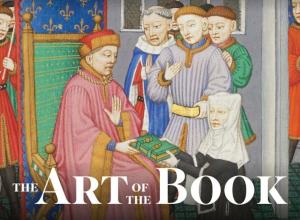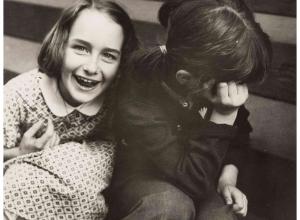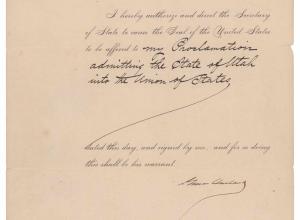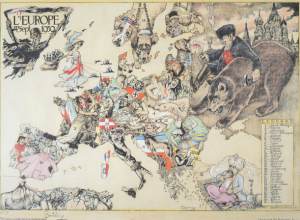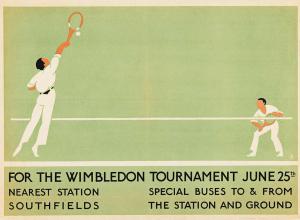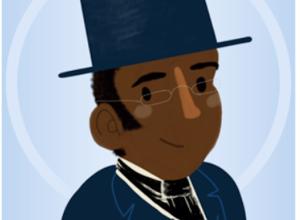Bright Young Collectors: Mara Goldwyn
Where are you from / where do you live?
West Philadelphia born and raised, I now live in the Kreuzberg 36 neighborhood of the former West Berlin. I've been here for the past thirteen years via New York City, Santa Fe, NM, and Madrid, Spain.
What did you study at University? What do you do now for an occupation?
I like to think of myself as a free-library-haunting punk-auto-didact, but the truth is I have a few completed and almost-completed degrees under my belt: A BA in Spanish literature and Latin American studies, a MA in American Studies from the Freie Universität Berlin, an Associate's in accessories design and millinery from FIT-NYC, and a certificate from the Colorado Antiquarian Book Seminar (CABS). Occupation-wise I am a creative researcher, artist and writer.
Please introduce us to your book collection. What areas do you collect in? (And please introduce to your occasional selling practices here as well).
My collection is more a practice than a clearly definable thing; I consider it more something I do as an artist than something I have, if that makes sense.
It was conceived late one summer night here in Kreuzberg while the Euro-hordes outside my window were caterwauling and clinking beer bottles. All I wanted was a silent room to read and think at night, with no social pressures to drink, smoke or share my thoughts with anyone. This eventually morphed into a cross-section of ideas, research methods, physical collections and artworks that I call The Night Library.
The mission of The Night Library is to "rewild knowledge acquisition," and with that in mind I've set up various art installations--and produced accompanying 'zines and poetic catalogs--utilizing the collection and giving people a space in which to be alone and distraction-free with the reading material. The hope is that they take the chance to contemplate that, while there is obvious censorship in totalitarian regimes, we in the so-called free world also need to contend with the self-editing and self-policing that comes with living so much of our lives on the internet. [Some of my work can be explored via The Night Library website.]
There was a conference here in Berlin a while back called "Former West," and that's a good description of things that seem to catch my eye: items from the Cold War era that nevertheless frustrate Cold War or binary East-West thinking. Fifteen years outside of the States and thirteen in its capitalist showpiece in Europe, West Berlin, have brought me to a more acute recognition of the extent to which I was brought up in a very specific ideology. That is, I've begun to recognize that "our" side has propaganda, too.
It's fascinating to me how as the "winners" of the Cold War we expect the former East to be so self-analytical and to somehow articulate a teleological narrative of oppression that tells us a story we want to hear ... that after years of being deprived of bananas, Bruce and blue jeans they were suddenly inspired to be free and tear down the Wall themselves, or something. Yet as Westerners we are excused from any type of self-reflection or summing-up of our own world view. For me, the Night Library has become my chance to see my American, capitalist heritage from the outside. It has become the working-through of my own taboos, the things I for some reason think I shouldn't be reading--let alone owning.
As for the actual items in the collection, I've acquired them during my travels in the Americas, Central and Eastern Europe and Eurasia over the past ten years or so. They include: apocalyptic ephemera from Evangelicals and Jehovah's Witnesses; hypnosis and mind time travel manuals; New Age, self-help, cult, occult and UFO literature; implicitly colonialist tourist guides and ethnographies; promotional literature from fossil-fuel extraction interests in the developing world; sundry reprehensible kitsch, conspiracy theory and pseudoscience. Then there's the stuff from the ex-Eastern Bloc that the locals are mostly carelessly casting off: old GDR text books, ethno-fairy tales from the non-Russian peoples of the Soviet sphere and keepsakes from various international Communist meetups; Russian and Bulgarian children's books about outer space and DIY-science magazines; East and West German books, comics, records and movies about American cowboys and especially Indians. Finally, I also have small collections of pre-war German cigarette-card books, American 80's stationary and greeting cards, Mexican pornographic comics, Melodiya albums (the state-owned record label of the USSR) from Soviet Central Asia especially Uzbekistan and psychedelic fabrics from Azerbaijan.
While I'm sure this all sounds eclectic even given my explanation about Former West, I also always find a sort of dream logic that holds it all together. For example my first "intuitive" sub-collection to go with my "Night Library Rare Concentration Room" installation was entitled "Time Lasso."
As my collection has been crystallizing, I've occasionally offered books for sale, too.
How many books are in your collection?
It's more than books. We're talking music, ephemera, postcards and all sorts of printed matter (even on fabric); let's say I have about 300 items.
What was the first book you bought for your collection?
Didn't buy but picked up ... a series of illustrated Christian fundamentalist Chick cartoon tracts about the satanic dangers of Halloween.
How about the most recent book?
I found a school notebook on a recent trip to Szczecin, Poland, a city on the border with Germany. It has a thumbs-down smiley-face meme on the cover that says "Keep Calm and Learn Niemiecki." "Niemiecki" is the Polish word for German. The image pretty much sums up the Polish-German relationship at the moment, with the Poles considering German language skills a sort of necessary evil.
And your favorite item in your collection?
It's a tie between a Bulgarian flyer I got handed in Sofia with the Hare Krishna Mantra in Cyrillic; Suve tagasitoomine - Põhja-Ameerika indiaanlaste muinasjutte, a tiny 1986 Estonian children's book illustrated by Tiiu Allikvee and designed by Silvi Liiva with fairy tales from Native American groups located in regions at the same latitude as Estonia; and a 1987 West German souvenir tote bag from Berlin's 750th anniversary that is printed with an image of the Radio Tower--the West's answer to East Berlin's TV Tower--with an actual working FM radio built into it.
Best bargain you've found?
I'm not sure if it would be considered a bargain anymore, but I felt it was at the time: A 1981 first edition of The Computer Speaks: God's Message to the World, by Rashad Khalifa. In it Khalifa had used computers to do a numerological analysis of the Quran and had discovered a mathematical code involving the number 19. (He was assassinated after a fatwa in 1990.)
How about The One that Got Away?
I am haunted by a bright-green hammered-tin advertisement hanging on the side of a newsstand in Kunming, China, that the nice local students showing us around translated to say "10,000 insects." I should have risked the 10 minutes of looking like a crazy foreigner to have just bought that thing.
What would be the Holy Grail for your collection?
When I read this question, I think of "Indiana Jones and the Last Crusade," with the father-son team of Sean Connery and Harrison Ford. In the movie the former has been obsessively searching for the Holy Grail his whole life, and when he and Indiana come upon it--though there are a lot of other tacky, bejeweled options--it turns out the authentic Grail is just a peasant's wooden cup.
I don't have one item that is the end-all be-all for the collection; I think I would've gone for one of the kitschy knock-off grails anyway. In general I find a bit patriarchal the compulsive and competitive pursuit of the Rare, not to mention the ecstatic finish that comes with getting that ONE THING that no one else has. What do I want the Holy Grail for? It's more about the journey.
Who is your favorite bookseller / bookstore?
I'm a big admirer of my fellow CABS '14 alum Nelson Harst and his Antifurniture collection, which I have watched from afar blossoming from a card table of books and ephemera in downtown NYC to a small empire of design items and actual furniture.
I also have a special place in my heart for my friend Molly Russakoff of Molly's Books and Records in the Italian Market in Philadelphia. There the good stuff is actually on the shelves!
What would you collect if you didn't collect books?
Probably obsolete print-technology gadgets like Xerox machines, label-makers and electric typewriters.






